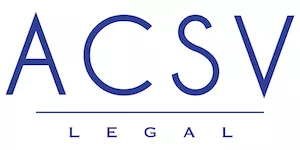Decree 10/2023/ND-CP on amendments and supplements to several articles of decrees on instructions for implementation of the Law on Land in Vietnam (Decree 10). It amends and supplements several articles of Decrees No. 43/2014/ND-CP, No. 44/2014/ND-CP, and No. 148/2020/ND-CP. The changes took effect on 20 May 2023. Decree 10 is expected to have a positive impact on the land market in Vietnam and was issued to resolve several existing land-related problems pending the expected promulgation of a new Law on Land later this year.
In this update, we will set out the most important changes.
- Bidding on Land-Use Rights
One of the key changes is related to the rules on land use right bidding. Under the new rules, the number of companies with a cross-ownership as prescribed by law that can bid is limited to one. This applies to an auction for land-use rights of a land parcel or a project with one or multiple land parcels. This change is aimed at preventing land speculation and ensuring that land use rights are auctioned in a fair and transparent manner.
The changes made to the rules on land use right bidding are part of a wider effort by the Vietnamese government to reform the land market. The government hopes that these reforms will make the land market more efficient and transparent and will help to attract more investment into the country.
- Tourism Accommodation Ownership Certificates
In the past, the issuance of an ownership certificate for condotels, resort villas, and other properties which are built on commercial and services land and used for accommodation and tourism purposes faced difficulties. This was mainly due to the lack of explicit legal regulations.
One of the new key provisions of Decree 10 is that developers and buyers can obtain the ownership certificate for their tourism accommodations. This will only be possible if the necessary conditions under the regulations on land, construction and real estate business are met. Furthermore, the developer must have obtained all necessary permits and licenses. Once the ownership certificate is issued, the developers and buyers will fully own the property, including the right to sell, rent, or mortgage it. This new provision is expected to make tourism real estate in Vietnam more attractive to investors and buyers.
- Land Recovery upon Termination of Investment Project
Before Decree 10, there was no regulation regarding land recovery in case an investment project is terminated under the investment laws. This means that upon termination of an investment project, the investment registration authority or the investor needs to send the termination documents to the local natural resources and environment authority where the land is located. That authority subsequently performs the inspection and conducts the land recovery.
From the termination date of an investment project, the land user will have 24 months to transfer the land-use right and conduct the property liquidation. If the land user has not performed the transfer and liquidation after 24 months, the State shall recover the land without any compensation. This new provision clarifies the land recovery process when an investor is considering terminating their investment project.
- Conversion of Land use Purpose
Decree 10 allows for the conversion of the land use purpose to implement investment projects in certain cases. The conversion must be approved by the competent authority and must comply with the following conditions:
- Have an approved investment project;
- Suitable for the district-level land planning or the content of the investment project listed in the district-level land planning;
- Have an alternative afforestation planning or topsoil usage planning and documents evidencing the relevant payment fulfilment; and
- Have the corresponding environmental impact assessment.
The conversion of the land use purpose can be a complex process, but it can be a valuable tool for investors who are looking to develop new projects in Vietnam.
The content of this article is intended to provide a general guide to the subject matter. Specialist advice should be sought about your specific circumstances.


